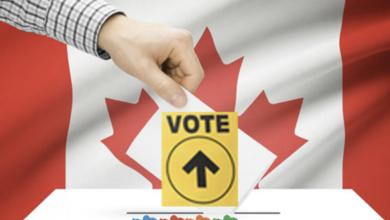Changes to the federal immigration program are more likely to bring health workers from abroad to Canada
Two federal Liberal cabinet ministers arrived in Bedford on Wednesday promising an influx of immigrant health workers to fill unprecedented Canadian shortages.
“We are going to bring more health workers to this country,” Immigration Secretary Sean Fraser, MP for Central Nova, told a group gathered on the grounds of the Nova Scotia College of Nursing in Bedford.
Fraser said, “You don’t have to delve into the data that we have easy access to from Health Canada or with provincial systems to understand the deficit”.
“You talk to everyone in every community who is experiencing delays in the health care system, talk to the health care workers who are under severe stress.”
The minister said the federal government is going to do something “dramatically different” in terms of how the immigration system is run to meet those needs.
Last month, Fraser announced new changes to Canada’s flagship economic immigration program, Express Entry, allowing the government to issue invitations to apply for permanent residency in Canada to applicants from certain fields of study or with specific skills, education or language skills.
On Wednesday, Fraser and Federal Health Minister Jean-Yves Duclos announced the use of these new features for a special round of invitations that will be sent to healthcare professionals, including doctors, nurses, dentists, pharmacists, physiotherapists and optometrists.
The first round of category-based selection opened on Wednesday and will invite 500 health professionals to apply. A second round, in which 1,500 employees are invited to apply, will start on July 5.
Fraser said the Express Entry program has historically scored applicants based on a number of factors, including age, education and work experience, and historically, the highest-scoring people have been chosen regardless of what industry they work in.
Last month’s announcement said the immigration system would be transformed to focus on five key sectors, namely health and STEM occupations such as agriculture, education and skilled trades.
“The first industry to benefit from this new process is healthcare,” Fraser said. “The reality is that we expect this new process to double the number of healthcare professionals coming through the federal Express Entry system this year,” he said.
Fraser said Canada welcomed more than 21,000 immigrant health workers between 2017 and 2022.
“But we can do more and with this tool we are going to do more.”
Politicians across the country can confirm that the biggest issue voters are raising on the campaign trail is health care, Fraser said, and while it’s considered a provincial responsibility, the federal government will “use whatever leverage” it has at its disposal. available to assist.
Duclos said labor shortages are more prominent in Canadian health care than any other sector.
According to an RBC economic report, Duclos said, Canada will have a physician shortage of 44,000 by 2028 and 70 percent of job openings will be primary care physicians, typically the primary healthcare professionals to care for, diagnose and treat Canadians, Duclos said. .
An analysis of nursing in the country as of 2018 projected a shortage of more than 100,000 by 2030.
“A key shared priority is to promote the retention, training and recruitment of health care workers and streamline the recognition of credentials for those trained abroad in other jurisdictions,” Duclos said of the $200 10-year plan. billion reached earlier this year. between the federal government and most provinces and territories to provide better health care for all Canadians.
Duclos said Wednesday’s announcement will “facilitate, expedite and streamline” permanent residency applications for people who have the skills Canada needs to fill specific health care gaps.
Sue Smith, CEO and Registrar of the Nova Scotia College of Nursing, said the new approach to immigration is welcome news.
“Our role is to regulate all nurses in Nova Scotia on behalf of the public interest, first and foremost,” Smith said, making sure everyone eligible to practice has demonstrated that they are safe, competent and qualified.
“This also applies to international nurses,” Smith said. “We have challenged ourselves as a regulator to really rethink our approach to registration and licensure. … On May 1, we introduced streamlined registration for qualified internationally registered nurses licensed in good standing in seven countries: the Philippines, India, Nigeria, the UK, the US, Australia and New Zealand.
“Our modernized process changed the way we do it, but we didn’t change what we do. We are pleased that the changes will give the public greater access to care and safe, high-quality nursing services.”
As of Tuesday, the college has received more than 10,000 applications for licensure since May 1 and has a goal of approving 5,000 by the end of the year, she said.




